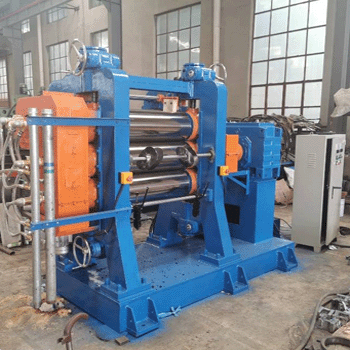EVA (Ethylene Vinyl Acetate) floor mats are widely used in various occasion due to its properties of durability, softness, and shock-absorbing . From children’s play areas to yoga, exercise, and playrooms gyms and workshops, these EVA mats create a comfortable and stylish outdoor seating area or play space and offer a combination of comfort, durability, and versatility , exsisting here and there. But how exactly are they made? Here , Let’s know about its production process step-by-step and which equipment need to used to bring these EVA mats to life.
Step 1: Mixing
Equipment Needed: High-Speed Mixer / Banbury Internal Mixer
The mixing production starts with blending EVA resin with additives such as foaming agents, crosslinkers, stabilizers, and pigments. A Banbury Mixer or High-Speed Mixer need to be used,so that ensure the mixture is uniform, which is critical for consistent product performance.
Step 2: Extrusion
Equipment Needed: Twin-Screw or Single-Screw Extruder
The blended compound would be fed into an screw extruder machine , where is melted and shaped into a continuous sheet. Through this extruding technique , the screw extruder machine can control initial thickness and make sure the raw sheet smooth and stable for further processing.
Step 3: Calendering
Equipment: Roll Calender Machine
The extruding material can out from extrud machine and then need to be passed through roller calender machine (2 or 3 Rollers), which can be adjusted the gap between two rolls ,so that adjust the thickness of material , enhancing material surface finish, and also can imprint basic textures if needed. For EVA mats with layered construction (such as foam + film), calendering process can help laminate the layers together with heat and pressure.
Step 4: Foaming
Equipment: Hot Air Foaming Oven or Infrared Foaming Line
This step is very critical , after calendering ,the mateiral enters a foaming oven equipment which can control heat activates the foaming agents. The material sheet expands and becomes soft, cushioned, and lightweight due to the heating. This step determines the final density, rebound, and thickness of the EVA mat.
Step 5: Cutting & Shaping
Equipment: Hydraulic Press and CNC Cutter
Once cooled, the foamed EVA sheet would be cut into small specific mats in various sizes and shapes. Hydraulic presses equipment are specially used for square mats, while CNC cutting machines are specially used for custom or interlocking designs.
Conclusion
Therefore ,in conclusion ,to produce EVA floor mats need a series of steps and essential machiner ,including internal mixer ,screw extruder ,calender machine ,hydraulic press and EVA cutting machine etc .Whether you are running a gym or wholesale of EVA mats to retailers, understanding this production process is key to controlling quality and cost.
If you are looking for EVA production machines, then Simptek would be your best choice .
We offer complete EVA floor mat production lines, including mixers, extruders, calenders, foaming ovens, and cutters—customizable for your capacity and product needs.







